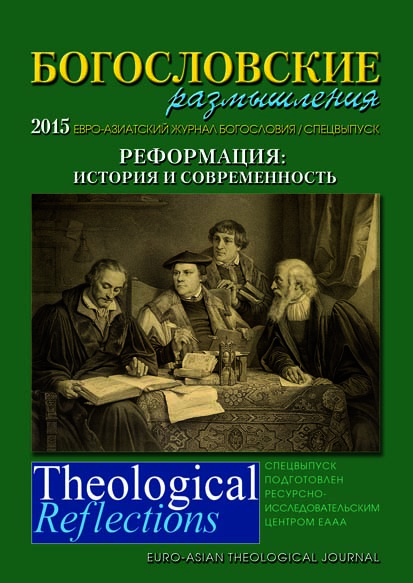Реформация в культурологическом контексте
Keywords:
Реформация, Ренессанс, Эпоха Возрождения, Лютер, Босх, ЭразмAbstract
Можно сказать, что учение Лютера стало, в сущности, теологией освобождения от тех форм лжесакральности, которые обременяли христианский дух, пригибали его к земле и мешали устремляться в трансцендентный мир Божьих откровений. На фоне отчетливо просматривавшейся экспансии язычества и секулярности церковная политика Рима вела к тому, что сакральное пространство, курируемое им, обретало искусственную замкнутость, так что оказалось фактически отторгнуто от трансцендентного мира Божьих откровений. Линия горизонта экзистенциальных ожиданий, очерчивавшая сферу духовной жизни, неумолимо сжималась, подобно затягивающейся петле. Возникло нечто вроде искусственной церковносакральной резервации, внутри которой у христианина не было возможностей ни свободно дышать, ни свободно мыслить.Downloads
How to Cite
Issue
Section
License
Copyright (c) 2020 Владислав БАЧИНИН

This work is licensed under a Creative Commons Attribution-NonCommercial 4.0 International License.
All articles published in the Journal are distributed under a Creative Commons Attribution-NonCommercial 4.0 International License
By submitting an article for publication in Theological Reflections: Eastern European Journal of Theology the author grants the editors the right to publish the article and distribute it in electronic and print form.
The author reserves all copyrights and the right to use the materials of the article in whole or in part for educational purposes, to write his own dissertations, to prepare abstracts, conference reports, oral presentations, etc., as well as post electronic copies of articles (including the final electronic version downloaded from the journal’s official website) on non-commercial web-resources without the consent of the editorial board and founders.



